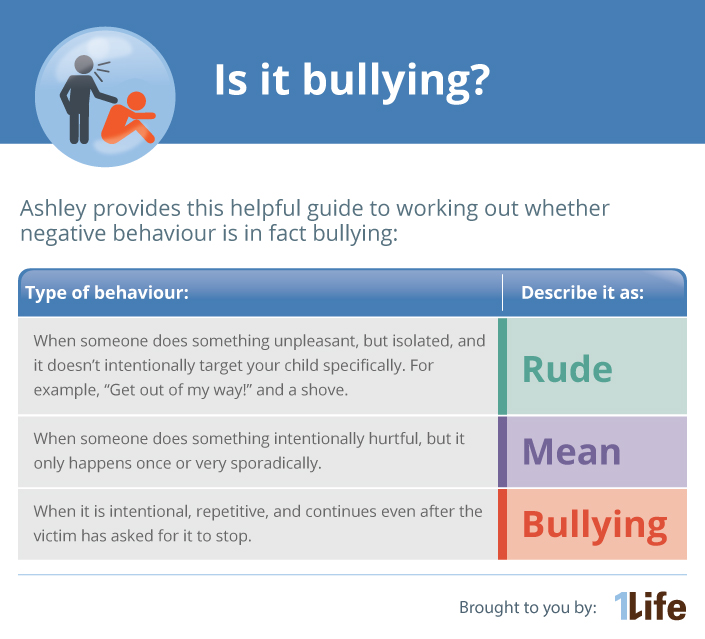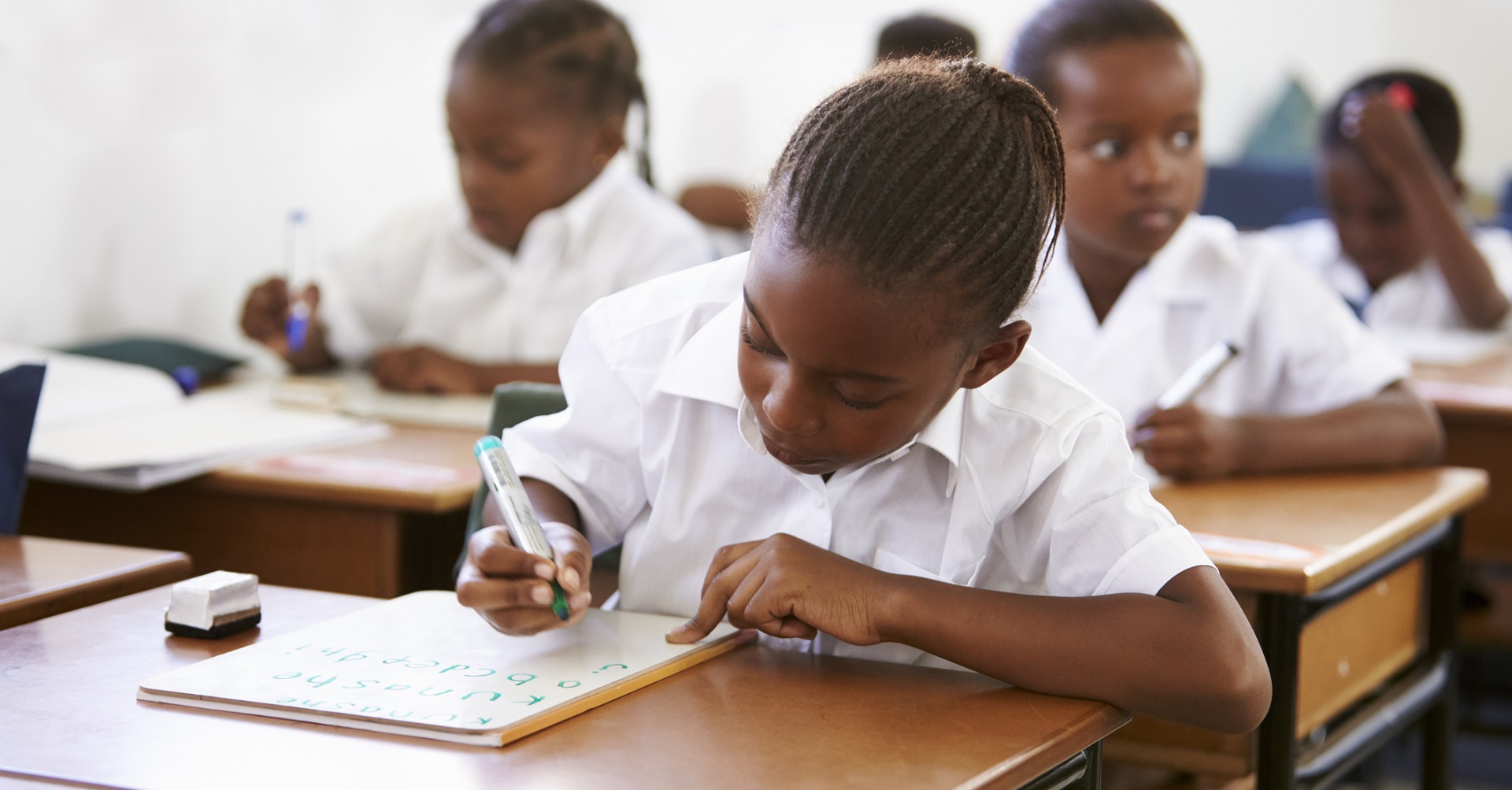It’s heart-breaking for any parent to learn that their child is being bullied at school. We all hope that our children will thrive socially as well as academically and finding out that they are the target of negative attention can be quite a blow. But if it’s dealt with appropriately, bullying doesn’t necessarily get out of hand. We spoke to Ashley Jay, a Norwood-based child psychologist, about what to do when you hear the dreaded words: “I am being bullied.”
Assess how bad the situation isAshley says that the first thing to do is determine how bad the bullying really is. “Children – and even adults – tend to overuse the term ‘bullying’ to describe any kind of negative behaviour by one child to another,” says Ashley. “This isn’t helpful, because it can create a victim mentality or make the situation seem worse than it is.”
Try to get the full story out of your child when they report bullying. Smaller children are especially likely to tell half the story – “he pinched me” – without perhaps explaining their own part in the altercation. You can ask questions like, “What happened before that?” or “Why do you think he did that?” to see if there’s more to the situation. “But don’t be sceptical,” says Ashley. “Make sure your child knows that they can always come to you, and you will help them to deal with unpleasant situations.”
Ashley also advises that parents should remember that children are sometimes unpleasant, mean, cruel or even violent with one another, but that they can be best friends again the next day. “That’s not to say that negative behaviour should be ignored – just that each incident should be seen as part of a broader context,” Ashley says. “And of course, if a single incident is serious enough to warrant parental or teacher intervention, it should absolutely be reported.”
She says it is helpful to discuss the definitions of rude, mean and bullying behaviour with your child, to give them insight into the severity of what’s happening to them.

Empower your child to solve the situationUnless the incident was serious enough to warrant immediate parental intervention, the best thing to do is to give your child the language to stop the other child from being unkind to them. “It’s so much better for your child if they resolve it themselves,” Ashley says. “If it’s getting out of control, then absolutely step in, but try not to do so right at the beginning – even though it’s sometimes hard for parents.”
For smaller children, she recommends roleplaying the right dialogue in three steps. Pretend to do whatever it is the bully is doing to them, and then teach them to say, in a loud voice:
- “Stop!”
- “That makes me feel sore/sad/afraid/angry.”
- “If you carry on, I will tell the teacher/the principal/my mom/my dad.”
“These three steps are critical, because it gives your child the sense that they tried to resolve it, and they didn’t run to the first teacher or adult that they saw.”
If your child is older, the same three steps can be used in slightly more sophisticated ways. Your child should always ask the other child to stop, explain why it’s upsetting them, and state that they will involve an adult if the matter continues.
“Always let your child know that you will support them in taking the next step, because in cases of true bullying, the bullied child is always fearful of the bully. Bullying must not be allowed to continue without meaningful intervention,” says Ashley.
A child who is being bullied won’t always come to you for help. In fact, they sometimes hide the situation from their parents out of shame or fear. Ashley says that if your child is becoming introverted or uncommunicative and you think that bullying might be the cause, then question them gently asking leading questions, reassuring them that you are there for them, and that you will help them to deal with any issues that they might be facing.
Dealing with the issueIf these steps are not enough to dissuade the bully, then it is time to intervene as a parent. Ashley says that it is really not advisable to tackle the other child’s parent, unless they are a friend and you can anticipate how they will respond. “Never go in to the encounter raging and blaming the other child or the parents, but rather with the intention of resolving a situation so that both children can continue to coexist in their school environment.”
Remember, bullies often need help themselves, so read this blog for insight into what might be happening in their world. But of course, your child is your priority.
“Unfortunately, there is very little consistency about how a school might deal with a bullying situation,” says Ashley. “If you ask, all schools will say that they have a ‘zero tolerance’ approach to bullying, but you need to ask them what that actually means. What steps will they take? Do they have a school counsellor who will deal with the fall-out for both the victim and the bully? What action will they take immediately to help your child?”
Unfortunately, she says, many teachers or principals will become defensive when confronted with a report of bullying, which is why, again, it’s a good idea to be firm about requiring an intervention, but not angry or full of blame about what’s happened.
“What you are ideally hoping for is that they will collaborate with you, your child, the other child and the other child’s parents in finding a working solution,” says Ashley. “If the school can try to address the situation from an emotional perspective, to try to look into the cause of the behaviour, rather than taking an outright punitive stance, the outcomes are likely to be better.”
If you are not supported in dealing with the issue, if your child has an intellectual or physical difference that is making them an easy target, or if your child is repeatedly victimised by more than one other child, it might be worth considering moving your child to a different environment that is more supportive and inclusive.
“There are times when you can empower your child in their existing environment, and times when the only workable solution is to take them out of that environment,” says Ashley.
Moving onWhile there isn’t always a quick fix for bullying, the two most important things you can do are letting your child know that you have their back and helping them to feel empowered to deal with this and all other challenges that life might throw at them. Being bullied is awful for both the child and the parent, but with swift and appropriate action, the best outcomes will be achieved.




